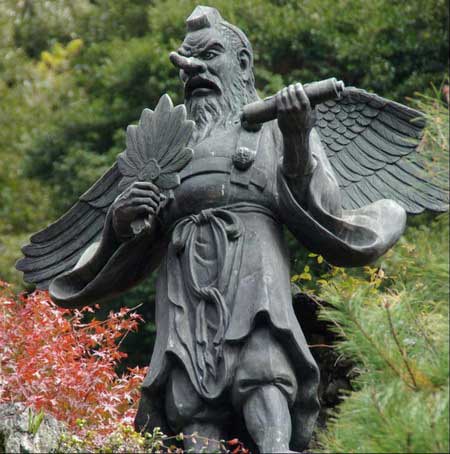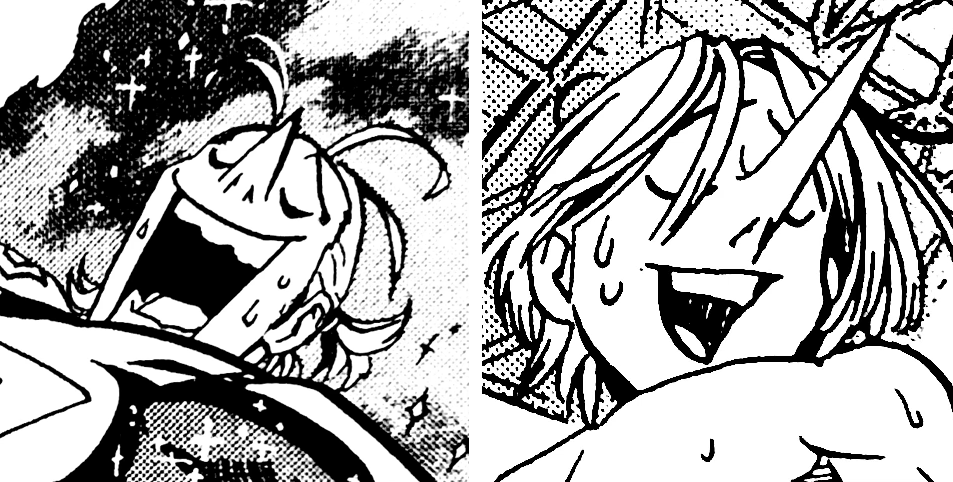 Tengu
Tengu 

Tengu (天狗, “heavenly dog”) are winged goblins found in Shinto and Japanese Buddhist mythology. They’re the spiritual guardians of mountains and forests, and are among the most powerful in Japan’s expansive menagerie of youkai (妖怪), or supernatural beings.
Many types of tengu have appeared in countless pieces of Japanese art and literature throughout the centuries, but the most widely recognizable are those that look and dress like yamabushi (山伏), or ascetic hermits of the ancient Shuugendou religion. They typically wear traditional monastic robes, small black hats called tokin (頭襟), and tall sandals called geta (下駄). Such tengu are often depicted with feathery wings, red grimacing faces, wispy beards and abnormally long noses. You may find their faces featured on festival masks and costumes as well.
By nature, tengu are brash, prideful, and mischievous tricksters. Their abilities include flying at high speeds, communicating with animals (especially birds), shapeshifting, telepathy, and stirring up strong wind gusts using a feathered fan weapon called a hauchiwa (羽団扇). They’re sometimes depicted as enemies to the Buddhist faith, as they enjoy pranking clerics to sabotage their paths to enlightenment, such as by robbing temples or by possessing human women to seduce monks into breaking their vows of celibacy. Legends have even speculated that tengu are the spirits of clergy who became heretics and hedonists. All of that said, these pranks can also teach their targets humility, as well as test their spiritual resolve and devotion.
Because they're notoriously vain, the word tengu is sometimes used in modern Japanese to refer to someone who's a braggart or a show-off. This is especially reflected in the popular idiom tengu ni naru (天狗になる), or “to become a tengu,” meaning to get cocky or arrogant. This is analogous to the English idiom “to get a big head.”
 Relevance to Eyeshield 21
Relevance to Eyeshield 21 

Natsuhiko Taki, tight end for the Deimon Devil Bats, is prone to obnoxious fits of vanity whenever his ego is stroked too much. In a few of these instances, he tosses back his head and his nose grows longer, just like that of a tengu. A growing nose is a common visual reference to the “becoming a tengu” idiom defined above.



